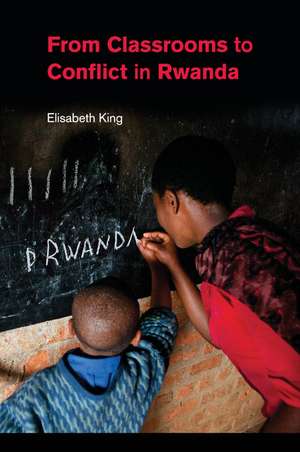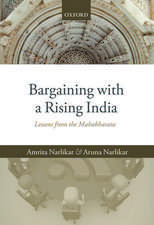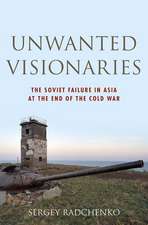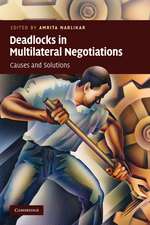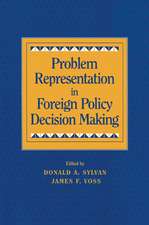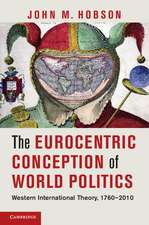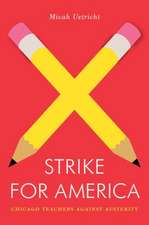From Classrooms to Conflict in Rwanda
Autor Elisabeth Kingen Limba Engleză Paperback – 5 aug 2015
| Toate formatele și edițiile | Preț | Express |
|---|---|---|
| Paperback (1) | 282.87 lei 6-8 săpt. | |
| Cambridge University Press – 5 aug 2015 | 282.87 lei 6-8 săpt. | |
| Hardback (1) | 750.07 lei 6-8 săpt. | |
| Cambridge University Press – 15 dec 2013 | 750.07 lei 6-8 săpt. |
Preț: 282.87 lei
Nou
Puncte Express: 424
Preț estimativ în valută:
54.13€ • 56.31$ • 44.69£
54.13€ • 56.31$ • 44.69£
Carte tipărită la comandă
Livrare economică 14-28 aprilie
Preluare comenzi: 021 569.72.76
Specificații
ISBN-13: 9781107557550
ISBN-10: 1107557550
Pagini: 226
Ilustrații: 2 b/w illus. 1 map 11 tables
Dimensiuni: 152 x 229 x 14 mm
Greutate: 0.34 kg
Editura: Cambridge University Press
Colecția Cambridge University Press
Locul publicării:New York, United States
ISBN-10: 1107557550
Pagini: 226
Ilustrații: 2 b/w illus. 1 map 11 tables
Dimensiuni: 152 x 229 x 14 mm
Greutate: 0.34 kg
Editura: Cambridge University Press
Colecția Cambridge University Press
Locul publicării:New York, United States
Cuprins
1. Moving education from the margins to the mainstream; 2. Colonial schooling; 3. Schooling under the Rwandan republics; 4. Schooling after genocide; 5. Education for peace building: Rwanda in comparative perspective; 6. Conclusion.
Recenzii
'From Classrooms to Conflict in Rwanda argues that the content and format of education, not just its availability, really matter. Elisabeth King proposes that in each of Rwanda's three principal modern political epochs - colonial, republic, and post-genocide - education and schooling exacerbated differences and horizontal inequalities, fostered stigma, and nourished competition for resources. King's writing is clear and lively, her organization is solid, and her thesis is firmly delivered. [She] has a very sensitive and intuitive understanding of the complexities of Rwandan history and of Rwandan political life today. This book is a gem.' Mark A. Drumbl, Class of 1975 Alumni Professor of Law and Director, Transnational Law Institute, Washington and Lee University
'While other analyses of the Rwandan genocide have mentioned education among the many factors making the violence possible, this is the first attempt to look systematically at the role of education in relationship to conflict in Rwanda. This is also one of very few texts to look at Rwanda both before and after the genocide, rather than focusing on one era or the other. King draws extensively on secondary sources but also on a number of interviews that she conducted with people who have been either students or teachers in Rwandan schools at different points of time as well as with experts in education in Rwanda. This book should have broad interest, appealing to those with interests in education, conflict, and African affairs.' Timothy P. Longman, Director, African Studies Center, Boston University
'While other analyses of the Rwandan genocide have mentioned education among the many factors making the violence possible, this is the first attempt to look systematically at the role of education in relationship to conflict in Rwanda. This is also one of very few texts to look at Rwanda both before and after the genocide, rather than focusing on one era or the other. King draws extensively on secondary sources but also on a number of interviews that she conducted with people who have been either students or teachers in Rwandan schools at different points of time as well as with experts in education in Rwanda. This book should have broad interest, appealing to those with interests in education, conflict, and African affairs.' Timothy P. Longman, Director, African Studies Center, Boston University
Notă biografică
Descriere
Based on fieldwork and comparative historical analysis of Rwanda, this book questions the conventional wisdom that education builds peace.
